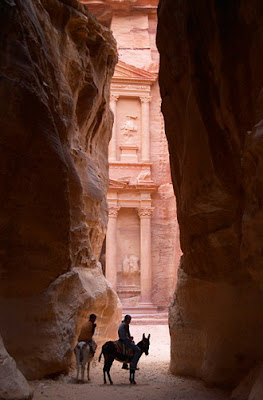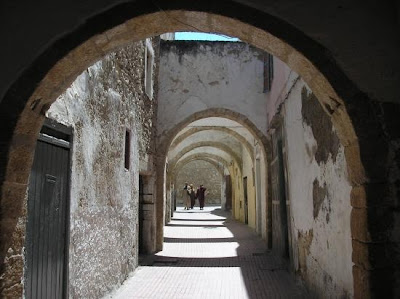

Travelling in Yemen has become a common practice for educated Europeans - one of the poorest countries in the world that was once the richest power during the reign of Queen of Sheba. Caravans of gold, spices and diamonds came through Yemen. From former luxury remained temples, fortresses and millennial ruins - and two Seas, the Red and Arabian, 110 islands and the endless chains of hungry mountain villages.
Even the risk of kidnapping by some tribe doesn't stop the travelers. According to the World Tourism Organization, in 1997, when it was kidnapped a record number of foreigners - 36 people, Yemen attended by the biggest number of tourists - 75 thousand. Revenues from tourism jumped to 69 million dollars, that is 64 per cent more than in 1996. The two most thorough European airlines - Lufthansa German and Dutch KLM - by the end of the year increased the number of flights to Yemen from two to three times a week, and Yemenia Airlines performs flights to London, Rome and Madrid. Hence, it is profitable. The main market for tourism in Yemen is Italy and Germany (leaders), but it appears more interested in Belgium, Britain, France and Spain.
Yemen authorities tried to decrease the risk of kidnaps, but this has not prevented 115 foreigners, among whom were mainly tourists, to be held hostage by armed tribes in the past five years. But they were all released, including British family, whicn was held 2 weeks and then released. In such kidnapping cases no harm is caused to people. For 100 years it no one foreigner has been killed - in contrast to the Egypt. By the hostages, tribal members are treated as guests and are often sent home with a souvenir - a memento of the adventure. Still, the elementary precaution is necessary. It is better to travel in groups with security, to use the services of major travel agencies and avoid risky areas - such as Maarib, Shabwa and Al-Dzhouf. In Sana'a - Yemen's capital since 1993, was kidnapped only one person.
Hotels, however, are not enough. Especially the four-and five-star. Of 229 local hotels only few meet international standards. And the hotel of an international network of "Meridien", which opened in 2000 in Sana'a, didn't change the situation - there is no investments here. The only thing that can really compensate for the lack of comfort are historical monuments and nature reserves, this fabulous open-air museum. Will the tourists - will be money. And the great country of Sheba will be called again, as once, Arabia felix - happy Arabia.














